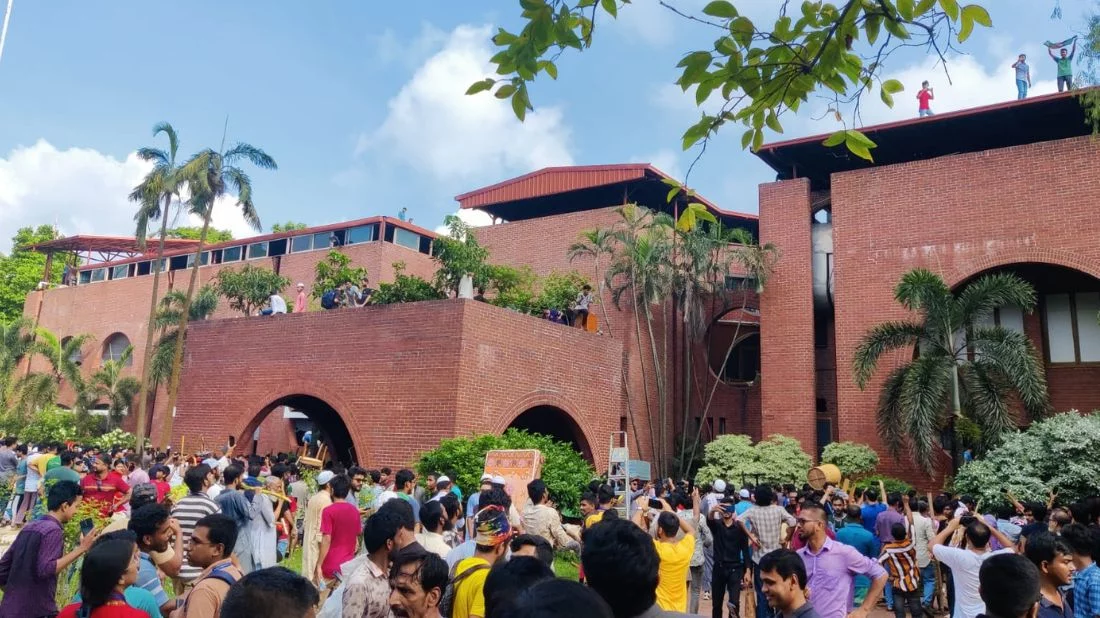Originally posted in Dhaka Tribune on 6 August 2024

I extend my sincerest congratulations to the young individuals in our community. They have achieved the seemingly unachievable. Their courageous deeds have not only converted the quota reform in government employment into a powerful popular revolt for political transformation, but also resonated with the aspirations of every individual in the nation. Their resonant voices have deeply moved and inspired the whole country, illuminating the path towards progress.
For the last 15 years, individuals have been denied economic advantages as a result of persistent corruption and prejudice. The government’s exclusive preoccupation was with economic expansion, which failed to significantly impact the lives of broader segments of the populace. It only favoured dishonest politicians, bureaucrats, and entrepreneurs.
The administration has methodically destroyed the institutions. The scarcity of employment prospects and the practice of preferential treatment via the quota system are indicative of the marginalization experienced by the youth in the nation. The state and its dysfunctional systems must be rebuilt. The economy must be salvaged from the turmoil caused by the despotic administration and its supporters. Rectifying the chaos caused by the Awami League administration over the last 15 years would need extensive effort and resolute decision-making.
Individuals are experiencing the adverse effects of significant inflationary pressure and insufficient money. The economic foundations have been severely compromised. Consequently, all economic indices are under strain. Every institution has been methodically dismantled to enable corruption and maintain an undemocratic grip on power.
The heads of regulatory agencies responsible for governing the economy exhibited complete obedience to the government and made erroneous and detrimental choices in order to appease party members and those with connections to those in power. Some examples are Bangladesh Bank, National Board of Revenue, and Capital Market. Consequently, these entities have implemented various discriminatory and erroneous policies. Some of these actions involve amending the Banking Company Act to benefit the board directors, refraining from taking any measures against intentional bank loan defaulters, altering the definition of classified loans, maintaining fixed interest rate caps for an extended period, and neglecting to make autonomous decisions to manage inflation.
The list of desired experiences is extensive. Significant exertion and unwavering commitment will be required to effectively guide the trajectory of the economy. Nevertheless, Bangladesh has a pool of competent, devoted, and honest individuals capable of doing challenging tasks.
Dr Fahmida Khatun is the Executive Director, Centre for Policy Dialogue.


